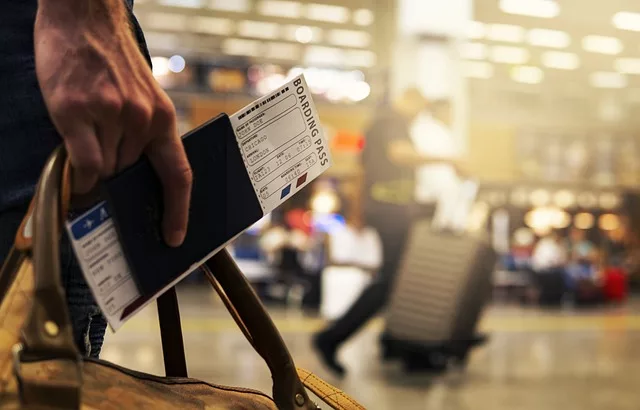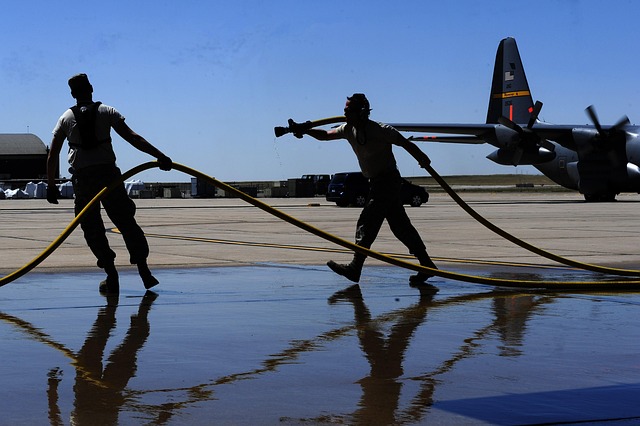PCSing Overseas as a Military Spouse

What to Remember About PCSing Overseas as a Military Spouse
Military members have it a bit easier than military spouses when preparing for a PCS move overseas. After all, the service member is required to sit in PCS briefings and can ask someone in authority directly (via the chain of command) about issues related to PCSing. They have more direct access to the information at times compared to their spouse.
Spouses, on the other hand, don’t get to attend many of those briefings and sometimes get information about the move later in the process than the servicemember. There are some important issues to know about as a military spouse before the movers come to pack and ship your household goods.
Keep Your ID and Passport Up-To-Date
For best results, it’s important to maintain your passport as a military spouse, even if you have to pay out-of-pocket to do so.
Why? Because no-fee passports (in the context of PCS moves) are offered only when the service member has received PCS orders, and getting your passport updated, replaced, or initiated after the orders come may require you to act much faster to meet your PCS deadlines. It’s best to keep ALL forms of ID required for travel current.
And let’s not forget that some military members get sent on unaccompanied assignments and the spouse’s passport would not necessarily get updated at the government’s expense.
A person who has never PCSed before might not feel they need an updated passport. But that overlooks the possibility that the spouse might want to travel to visit their husband or wife at an overseas location–something that’s more common than you might think at first for assignments that are not “remote” or “hardship tours”.
Consider Your Household Goods
You might not be worried that your household goods shipment is over the weight limit, and you might be right. But there are many reasons to consider storing, donating or selling some of your items before you PCS overseas.
One of those reasons? Other countries and cultures have different ideas about what makes the right-sized home. Many overseas bases are in countries where living conditions are traditionally smaller than in American homes–your full load of household goods may quickly fill up such a smaller place and leave you without room for the rest.
Consider the potential differences in housing at the gaining base when choosing what to keep and leave behind.
Are You Sure You Want to Ship Your Car?
Some overseas assignments allow you to ship a vehicle to drive while you are stationed there, but not all countries or assignments permit this. Shipping a car to your new base sounds like a great idea and often is, except that some people fall in love with overseas assignments and decide to volunteer to do two consecutive overseas tours.
That’s not a problem for those who shipped a vehicle unless they get a second overseas assignment in a country that does not allow you to ship your vehicle there. Think ahead about your next PCS move and ask yourself if that scenario is a possibility for you. Anticipating those problems can save you headaches later on.
Check Current Pet Shipping Policies
In 2024, there were multiple changes to DoD pet shipping policies and civilian airline travel guidelines for pets. The rules for shipping dogs and cats have been subject to change because of federal agencies changing their rabies policies for imported animals, and commercial airlines adjusting travel policy as a result. Travel confusion related to pet travel may extend beyond those 2024 rule changes.
The best advice for PCSing with pets? Check with your gaining base and the airline you may be traveling on well in advance of need for shipping a cat or dog overseas.
Expect the Unexpected
Some PCS orders get changed, and some get changed while you prepare to move to the destination listed on the original orders.
Some assume they will become travel-ready with no complications, but unexpected complications may change your plans. For example, a military spouse with certain medical issues might assume they will have little trouble finding healthcare support at the gaining base.
But a military medical records review of the spouse’s condition may require a “command decision” from the service member’s chain of command to determine whether the spouse can be allowed to PCS to the new location.
If there is no medical support for the spouse, command sponsorship may not be approved.
The notification for such decisions may not come until the service member is well into the PCS process, and the family may have to make some tough choices in that scenario. This isn’t the only PCS problem one might face, but it is, believe it or not, common enough to warrant being mentioned here.
Save Some Extra Cash
When it is time for your actual overseas PCS travel, military spouses should know that some expenses will come out of pocket only to be reimbursed later. Saving some extra money will help during PCS season.
Consider what happens if you must travel to one of the east or west coast’s major airports only to learn your flight to the new duty location has been delayed or canceled that day due to weather or other problems. It is not uncommon, depending on the destination.
You won’t just need to pay for a place to sleep that night; you’ll likely also need meals, transportation, and money for other expenses. Expect delays, cancellations, and other variables to force you to spend more on the road than you budget for, and plan accordingly.
You could face such problems at any leg of your journey. Anytime the plane lands to pick up more passengers, refuel, or make unexpected stops increases the potential for a delay that may require you to spend some extra money.
RELATED:
- PCS Checklist
- Prepare For Your First PCS Move
- PCS Moves: Shipping a Privately Owned Vehicle Overseas
- Overseas Military Spouse Career Options
- Overseas PCS: Things Not to Forget When PCSing
- Best Vacations For Military Families Overseas
- Overseas Cost of Living Allowance Cuts in 2024
- PCS Season: What is Command Sponsorship for Overseas Tours?
About the author
Editor-in-Chief Joe Wallace is a 13-year veteran of the United States Air Force and a former reporter/editor for Air Force Television News and the Pentagon Channel. His freelance work includes contract work for Motorola, VALoans.com, and Credit Karma. He is co-founder of Dim Art House in Springfield, Illinois, and spends his non-writing time as an abstract painter, independent publisher, and occasional filmmaker.


